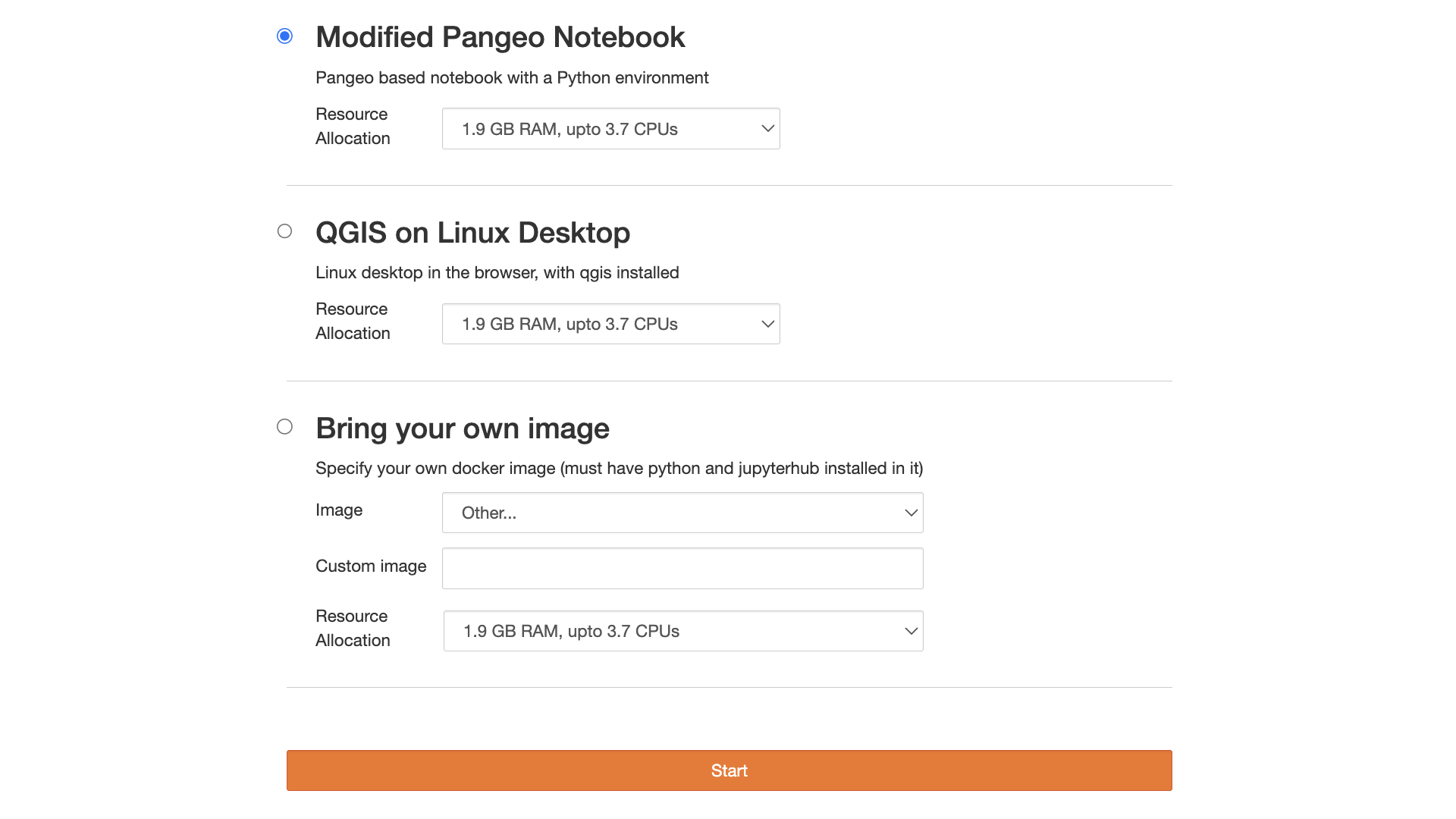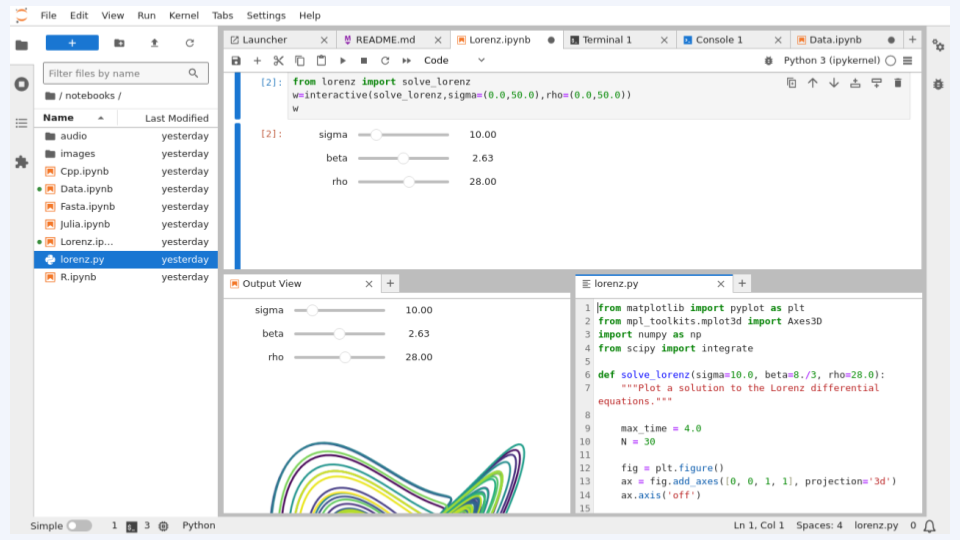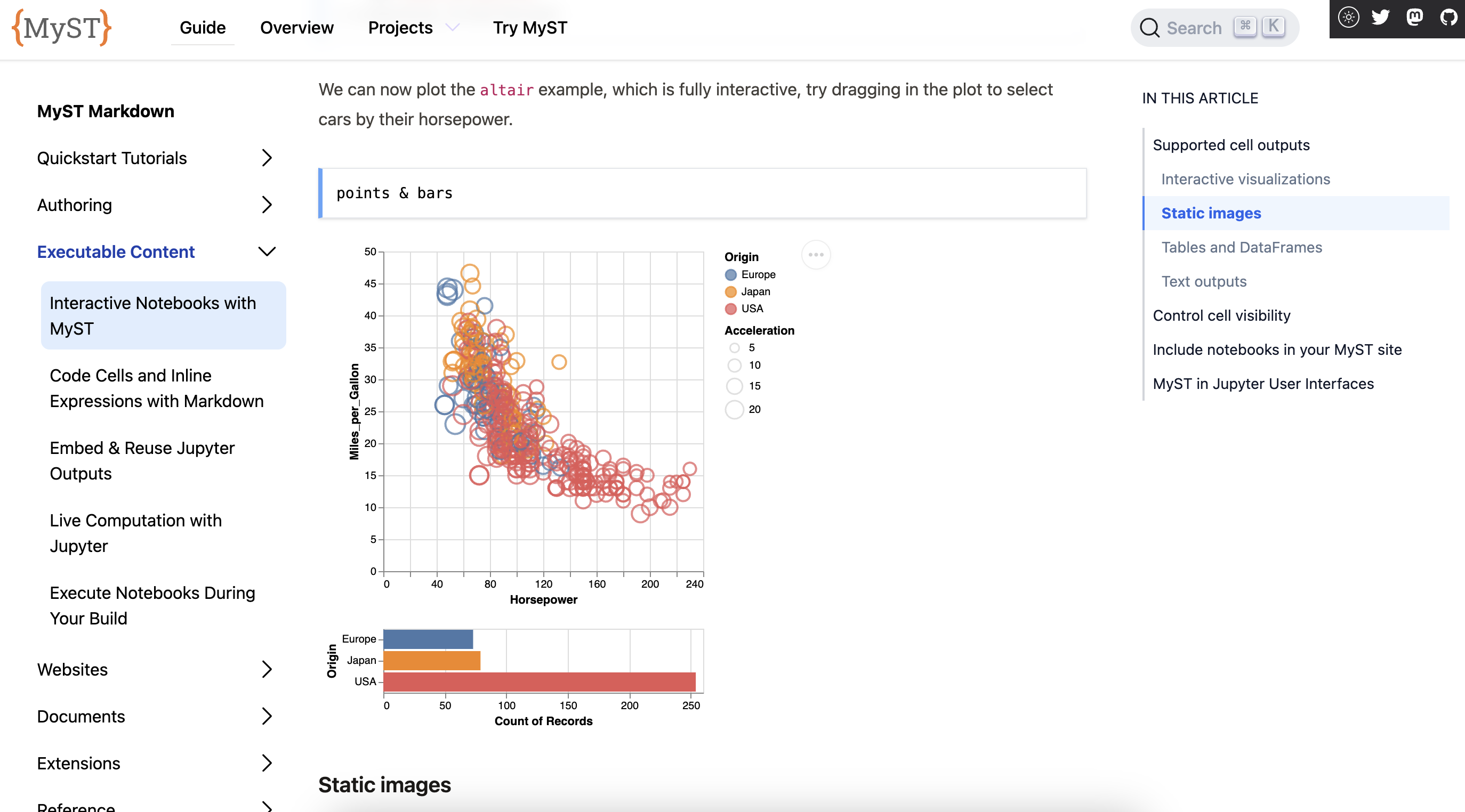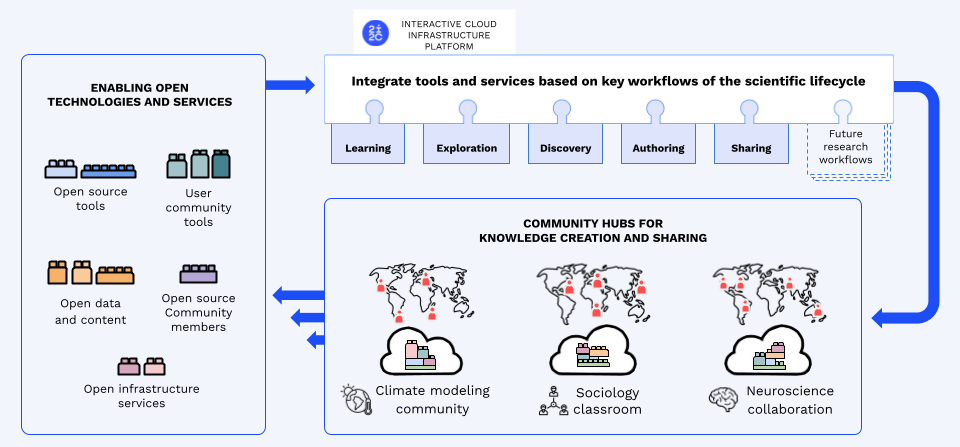A shared platform for global communities
Our interactive computing hubs provide frictionless access to open infrastructure to connect, create, and share knowledge using data.

Resource and user management
JupyterHub provides secure, remote access to the tools and resources needed for community users.
Interfaces for interactive computing
JupyterHub lets users learn, explore, create, and share with open data and tools.
A computational knowledge base
MyST and JupyterBook provide a central repository of knowledge to facilitate learning and sharing with computational narratives.Design interactive interfaces for data-driven discovery
JupyterLab provides a flexible user interface to create and explore notebooks, interactive visualizations, and computational narratives.
 and
and  . Example from Neuroglancer-JupyterLab.
. Example from Neuroglancer-JupyterLab.Choose a community environment, or create your own
Community leaders can offer many environments for users to fit all of their workflows.
 and
and  . Example from the NASA VEDA project.
. Example from the NASA VEDA project.Share workflows with a community knowledge base.
Shared knowledge bases allow communities to contribute their ideas and work to a shared space that is accessible to the community.
 and
and  . Example from the CryoCloud JupyterBook.
. Example from the CryoCloud JupyterBook.Share content and interactive links to a hub
Create and share a magic link to instantly share a copy of your content with anyone so that they can interact and explore with live code and data.
 and
and  . Example from the Spyglass toolbox paper.
. Example from the Spyglass toolbox paper.Serve linux applications via a remote desktop
You can provide users a full linux UI that provides access to GUI applications via the web.
 . Example from the NASA VEDA project.
. Example from the NASA VEDA project.Supported cloud providers
Learn more about our organization
- Our Team Compass contains all of 2i2c’s organizational strategy, policy, and team practices.
- Our updates blog series provides all major organizational updates for our community.
- Our Service Level Objectives describes our day-to-day goals running the service.
- Our Shared Responsibility Model describes how we collaborate with communities in this hub service.
- Our Infrastructure Guide describes all of our cloud infrastructure and engineering practices, with links to our codebase.


